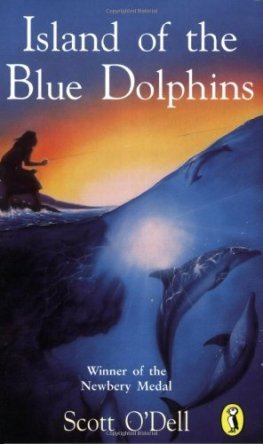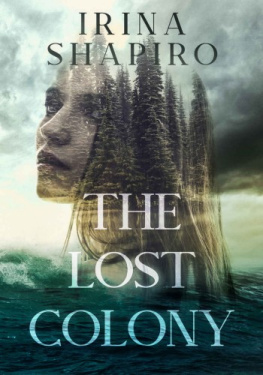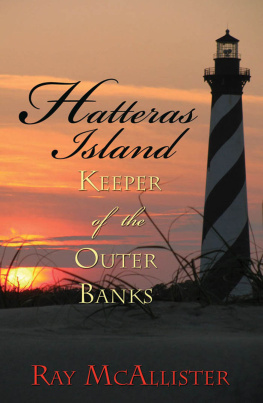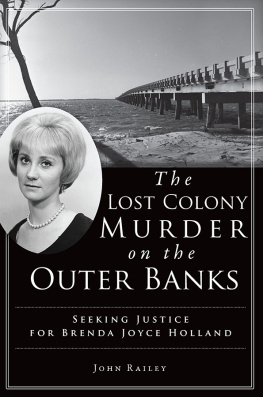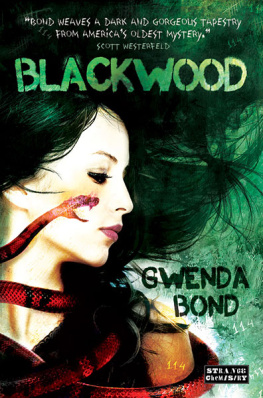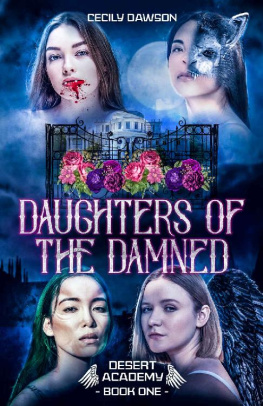Scott Dawson - The Lost Colony and Hatteras Island
Here you can read online Scott Dawson - The Lost Colony and Hatteras Island full text of the book (entire story) in english for free. Download pdf and epub, get meaning, cover and reviews about this ebook. year: 2020, publisher: Arcadia Publishing Inc., genre: History. Description of the work, (preface) as well as reviews are available. Best literature library LitArk.com created for fans of good reading and offers a wide selection of genres:
Romance novel
Science fiction
Adventure
Detective
Science
History
Home and family
Prose
Art
Politics
Computer
Non-fiction
Religion
Business
Children
Humor
Choose a favorite category and find really read worthwhile books. Enjoy immersion in the world of imagination, feel the emotions of the characters or learn something new for yourself, make an fascinating discovery.

- Book:The Lost Colony and Hatteras Island
- Author:
- Publisher:Arcadia Publishing Inc.
- Genre:
- Year:2020
- Rating:5 / 5
- Favourites:Add to favourites
- Your mark:
- 100
- 1
- 2
- 3
- 4
- 5
The Lost Colony and Hatteras Island: summary, description and annotation
We offer to read an annotation, description, summary or preface (depends on what the author of the book "The Lost Colony and Hatteras Island" wrote himself). If you haven't found the necessary information about the book — write in the comments, we will try to find it.
The Lost Colony and Hatteras Island — read online for free the complete book (whole text) full work
Below is the text of the book, divided by pages. System saving the place of the last page read, allows you to conveniently read the book "The Lost Colony and Hatteras Island" online for free, without having to search again every time where you left off. Put a bookmark, and you can go to the page where you finished reading at any time.
Font size:
Interval:
Bookmark:
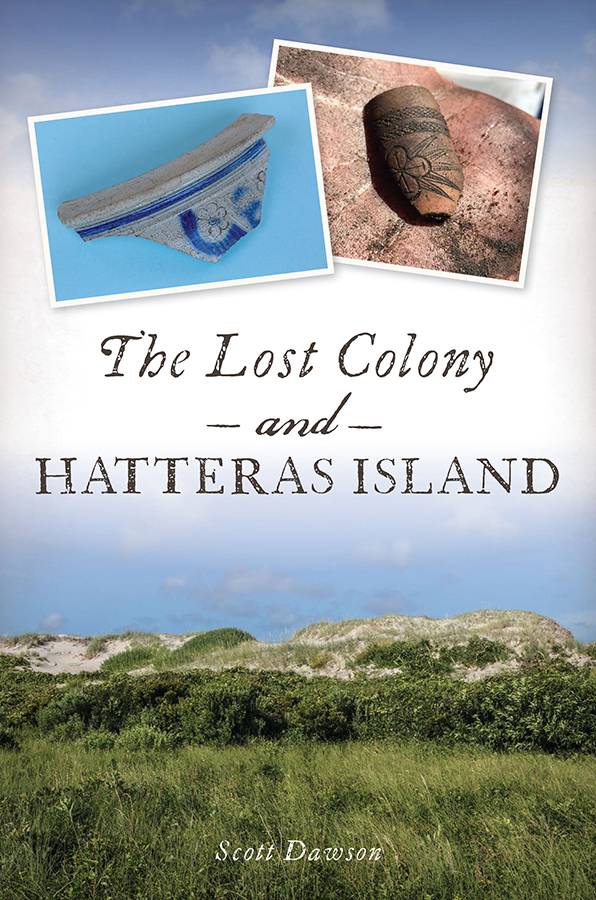


Published by The History Press
Charleston, SC
www.historypress.com
Copyright 2020 by Scott Dawson
All rights reserved
Front cover, bottom: Library of Congress.
First published 2020
E-Book edition 2020
ISBN 978.1.43966.994.5
Library of Congress Control Number: 2020930467
Print edition ISBN 978.1.46714.433.9
Notice: The information in this book is true and complete to the best of our knowledge. It is offered without guarantee on the part of the author or The History Press. The author and The History Press disclaim all liability in connection with the use of this book.
All rights reserved. No part of this book may be reproduced or transmitted in any form whatsoever without prior written permission from the publisher except in the case of brief quotations embodied in critical articles and reviews.
Sands of Time
Buried by the sands of time,
Blown in by the burning winds,
Like lost whispers of the pine,
A story lurks within.
A shattered civilization that no longer makes a sound,
Gone but not forgotten as we sink spades into the ground.
We honor those who came before and lent a helping hand,
No longer will you be ignored and sit beneath the sand.
original poem by Scott Davis Dawson
CONTENTS
FOREWORD
I first met Scott late one evening having driven from the Norfolk airport, where I had arrived that day from the UK. He was alone, looking after his fathers motel in Buxton. There in the corner of the reception was a heap of artifacts that he had gathered up over the years across Hatteras Island, as holiday homes were being built on the ancient sites. Could this brick be Tudor? was the first exchange we had in the eerie reception of that motel. But I had come over as a historical archaeologist, excavating Elizabethan sites in England and intrigued by the saga of the Lost Colony, thinking it might be a simple tale for an Englishman to resolve. Ten years later, and a whole mountain of excavation all over Hatteras Island, I now think we are closer to solving the mystery than ever, and this book tells the story.
Scott is born and bred a Hatterasman from a family tree that reliably goes back to the eighteenth century. He is related to most of the original families on the island and is a passionate advocate for its history and heritage. But Hatteras Island is remote and can only be reached by ferry or a long car journey along forty miles of finger-wide sand dune that gets washed by every passing hurricane. The consequence is that it has been all too often forgotten by historians, happier to reside in their metropolitan libraries than this outpost of America. Scotts passion and diligence stemmed from a frustration that what was clearly documented as the first foothold of the English in the New World was being denied by these historians. How could they avoid the conclusion that when John White returned to Roanoke in 1590 to find the inscription CRO on the oak tree or, even more clearly, CROATOAN on the forts palisade they had evacuated there, to the safety of the island of their Indian ally Manteo?
The answer, Scott believes, is that there are too many big dollars to be made out of the Lost Colony story and that to have a mystery is far better for the box office than a solution. But this is not science; this is where archaeology comes in. From that first meeting with Scott, we have been working together to find that crucial archaeological evidence to show that the abandoned colonists survived on Hatteras Island from around 1587, making their lives first as a colony but, having given up hope that they would be rescued, soon moving into the Indian villages, forming relationships, spawning children and creating families. Their descendants, the Hatteras Indians, were able to forge a successful life on the island, surviving until at least 1700 as the blue-eyed Indians observed by John Lawson, the next Englishman to record the Outer Banks, since the writings of Thomas Harriot 120 years earlier.
This book has emerged out of this collaboration between our archaeological research and Scotts sensitive reevaluation of historical and ethnographic sources. Every spring, I have brought a group of archaeology students to Hatteras, where, with the help of the volunteers of the Croatoan Archaeological Society, we have been discreetly investigating many of the potential sites where the colonists might have engaged with the Native American communities. What has emerged is a complex story of interaction; there is not a smoking gun piece of evidence, a single item that proves that they came here in 1587, but a compelling narrative that extends into the seventeenth century that tells of a singular society, spanning the two worlds that hunted with firearms, wore European dress, worked copper and traded with the English farther up the coast in Jamestown. This could only have been through the entanglement of English and American culture.
In todays world, with the emergence of nationalist politics, popularism and the miscasting of the past to serve the present, the Lost Colony story continues to have resonance today among certain political activists and writers. It is therefore important that a more unbiased and scientifically based account is presented to show that the first English to have settled in North America survived among Native Americans and that their descendants may still be living, unidentified, today.
I commend Scotts book to you; it is very much his personal journey of discovery and one that is written by someone who knows every inch of the landscape and every part of its history. It is not a formal scientific report of our many discoveries togetherthis will have to wait a little longer for the many careful analyses to be completedbut I hope this will serve as a taster for what might be coming in the future.
Professor Mark Horton
Professor of Archaeology and Culture History
Royal Agricultural University
Cirencester
England
PREFACE
Growing up on the Outer Banks, I was familiar with the Lost Colony mystery. As a child, I had seen the Lost Colony play and heard the mythology of 114 English colonists who vanished on Roanoke Island, leaving only one clue as to their whereabouts: the word Croatoan carved on a tree. It was not until I was an adult and finished with college that I discovered the real history surrounding the colony that eventually led to digging them up. It started with simply reading the primary sources and collecting Indian pottery from construction sites and evolved into a multinational archaeological dig that has now appeared on the History Channel, Discovery Channel, Travel Channel and National Geographic magazine. All credit and thanks to Dr. Mark Horton, his grad students and colleagues for traveling from the UK to North Carolina and investigating this piece of history. Also, thanks to my wife for organizing the Croatoan Archaeological Society and making these digs possible. I had no idea a team of professionals would ever come to Hatteras Island and dig up Croatoan and sixteenth-century English artifacts, but I am glad they did and am happy to have been a part of it.
The answers to where the colony disappeared to were painfully obvious and hidden in plain sight. Not once while I was in school did we learn about the English military settlements that came to the Outer Banks before the Lost Colony. I was never taught about how the Indians on the mainland were at war with the English before the colony arrived or that one of the colonists had been killed by them. I was never taught that the word
Next pageFont size:
Interval:
Bookmark:
Similar books «The Lost Colony and Hatteras Island»
Look at similar books to The Lost Colony and Hatteras Island. We have selected literature similar in name and meaning in the hope of providing readers with more options to find new, interesting, not yet read works.
Discussion, reviews of the book The Lost Colony and Hatteras Island and just readers' own opinions. Leave your comments, write what you think about the work, its meaning or the main characters. Specify what exactly you liked and what you didn't like, and why you think so.

